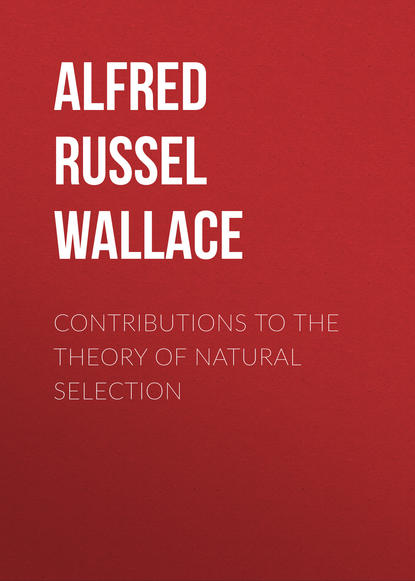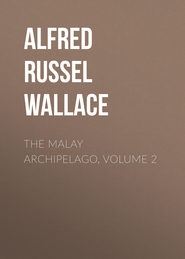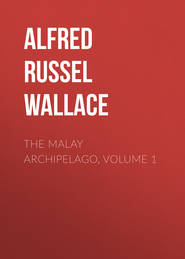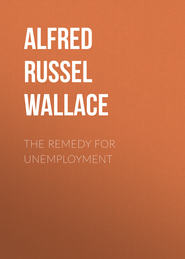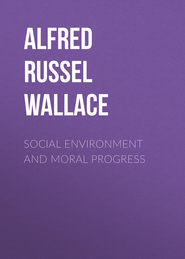По всем вопросам обращайтесь на: info@litportal.ru
(©) 2003-2024.
✖
Contributions to the Theory of Natural Selection
Автор
Год написания книги
2019
Настройки чтения
Размер шрифта
Высота строк
Поля
Morphos, how protected, 73 (#x3_x_3_i10).
Murray, Mr. Andrew, objections to theory of mimicry, 108 (#x3_pgepubid00041).
Muscicapidæ, sexual colouring and nidification of, 245 (#x7_x_7_i45).
Musophagidæ, sexual colouring and nidification of, 242 (#x7_x_7_i26).
Napeogenes, all the species are mimickers, 85 (#x3_x_3_i26).
Natural selection, the principle stated, 41 (#x2_x_2_i32)-43 (#x2_x_2_i34);
general acceptance of the theory of, 46 (#x2_x_2_i40);
tabular demonstration of, 302 (#x8_pgepubid00100);
outline of theory of, 307 (#x9_x_9_i9);
its effects on man and animals different, 311 (#x9_x_9_i13);
hardly acts among civilized societies, 330 (#x9_x_9_i47);
what it can not do, 333 (#x9_x_9_i52);
cannot produce injurious or useless modifications, 334 (#x9_x_9_i54).
Nectarineidæ, 254 (#x7_x_7_i68).
Necydalidæ, mimic Hymenoptera, 96 (#x3_x_3_i39).
Nemophas grayi, a Longicorn mimicked by a Longicorn, 95 (#x3_x_3_i37).
Nests of Birds, why different, 215 (#x6_x_6_i40);
of young birds, how built, 219 (#x6_x_6_i46);
construction of, described by Levaillant, 224 (#x6_x_6_i64);
imperfections in, 229 (#x6_x_6_i76);
influenced by changed conditions and persistent habits, 232 (#x7_x_7_i4);
classification of, according to function, 237 (#x7_x_7_i9).
New forms, how produced by variation and selection, 286 (#x8_x_8_i26).
New Guinea, relation of the several Papuan islands to, 194 (#x6_x_6_i5).
Nocturnal animals, colours of, 51 (#x2_x_2_i49).
Nomada, 98 (#x3_x_3_i43).
Oberea, species resemble Tenthredinidæ, 96 (#x3_x_3_i39).
Odontocera odyneroides, 96 (#x3_x_3_i39).
Odontocheila, 97 (#x3_x_3_i40).
Odyncrus sinuatus, 90 (#x3_x_3_i34).
Onthophilus sulcatus, like a seed, 58 (#x2_x_2_i62).
Onychocerus scorpio, resembles bark, 56 (#x2_x_2_i59).
Orange-tip butterfly, protective colouring of, 59 (#x2_x_2_i64).
Orchis, structure of an, explained by natural selection, 271 (#x8_pgepubid00091).
Orgyia antiqua and O. gonostigma, autumnal colours of, 62 (#x2_x_2_i66).
Oriolidæ, 253 (#x7_pgepubid00085).
Ornithoptera priamus, 145 (#x4_x_4_i44), 173 (#x5_x_5_i23);
O. helena, 173 (#x5_x_5_i23).
Oxyrhopus petolarius, O. trigeminus, O. formosus, 102 (#x3_x_3_i51).
Owen, Professor, on more generalized structure of extinct animals, 298 (#x8_pgepubid00098).
Pachyotris fabricii, 96 (#x3_x_3_i39).
Pachyrhynchi, weevils mimickedby Longicorns, 95 (#x3_x_3_i37).
Paleotherium, 299 (#x8_x_8_i45).
Paloplotherium, 299 (#x8_x_8_i45).
Papilio, black and red group imitated, 84 (#x3_x_3_i25).
Papilio achates, 147 (#x4_x_4_i46);
P. adamantius, 171 (#x5_x_5_i15);
P. ænigma, 87 (#x3_x_3_i29);
P. agamemnon, 141 (#x4_x_4_i38), 158 (#x4_x_4_i53), 170 (#x5_x_5_i11), 171 (#x5_x_5_i15);
P. agestor, 180 (#x5_x_5_i0);





